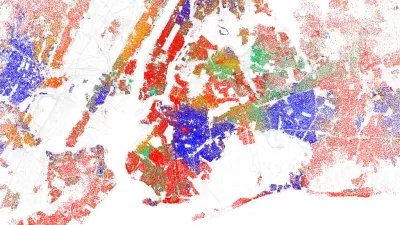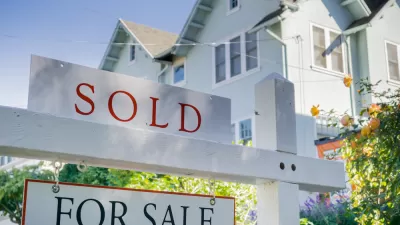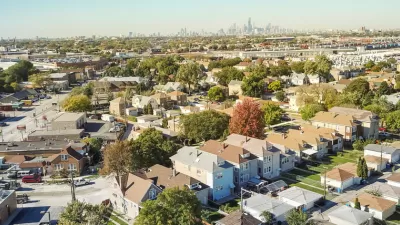According to a study, residential segregation and anti-black bias combine to devalue properties in majority-black neighborhoods by an average of $48,000 per home.

A Brookings report has found that in majority-black neighborhoods, owner-occupied homes are consistently undervalued, leading to negative ripple effects on community prosperity and the ability of residents to accrue wealth. Cumulative losses amount to $156 billion, a so-called "segregation tax."
Patrick Sisson writes, "The researchers noted that, while some of the majority-black neighborhoods they examined exhibited features associated with lower property values, including higher crime rates, longer commute times, and less access to high-scoring schools and well-rated restaurants, their analysis shows that these factors only explain roughly half of the undervaluation."
Accounting as well for the tendency of housing stock in majority-black neighborhoods to be older, with less average space, the researchers still found disparities in value that they peg to anti-black bias. Beyond its effects on individual homeowners, Sisson writes, systemic devaluation reduces the tax base and overall level of wealth present in communities, negatively impacting local education and infrastructure.
FULL STORY: How a ‘segregation tax’ is costing black American homeowners $156 billion

Alabama: Trump Terminates Settlements for Black Communities Harmed By Raw Sewage
Trump deemed the landmark civil rights agreement “illegal DEI and environmental justice policy.”

Study: Maui’s Plan to Convert Vacation Rentals to Long-Term Housing Could Cause Nearly $1 Billion Economic Loss
The plan would reduce visitor accommodation by 25% resulting in 1,900 jobs lost.

Planetizen Federal Action Tracker
A weekly monitor of how Trump’s orders and actions are impacting planners and planning in America.

Wind Energy on the Rise Despite Federal Policy Reversal
The Trump administration is revoking federal support for renewable energy, but demand for new projects continues unabated.

Passengers Flock to Caltrain After Electrification
The new electric trains are running faster and more reliably, leading to strong ridership growth on the Bay Area rail system.

Texas Churches Rally Behind ‘Yes in God’s Back Yard’ Legislation
Religious leaders want the state to reduce zoning regulations to streamline leasing church-owned land to housing developers.
Urban Design for Planners 1: Software Tools
This six-course series explores essential urban design concepts using open source software and equips planners with the tools they need to participate fully in the urban design process.
Planning for Universal Design
Learn the tools for implementing Universal Design in planning regulations.
Caltrans
Smith Gee Studio
Institute for Housing and Urban Development Studies (IHS)
City of Grandview
Harvard GSD Executive Education
Toledo-Lucas County Plan Commissions
Salt Lake City
NYU Wagner Graduate School of Public Service





























